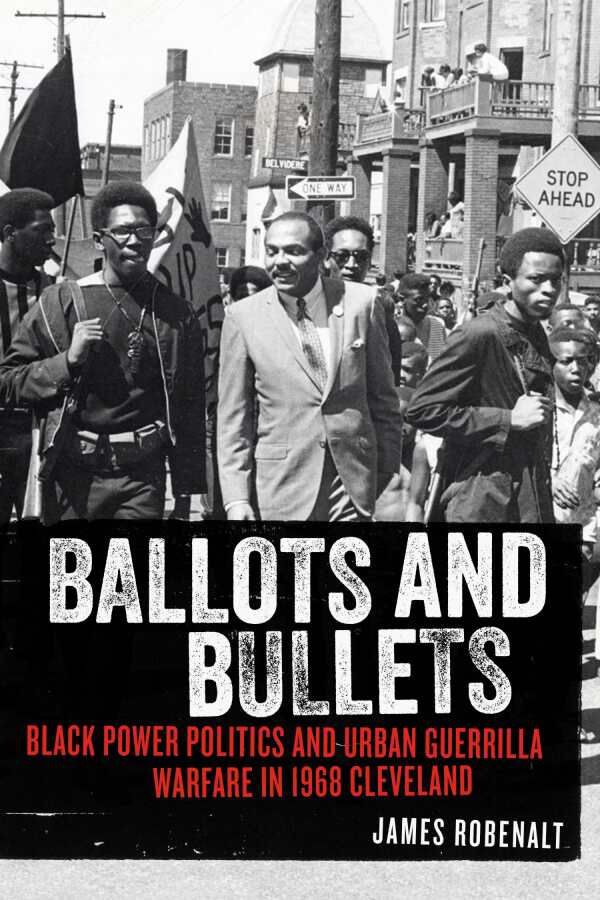Ballots and Bullets
Black Power Politics and Urban Guerrilla Warfare in 1968 Cleveland
As recalled in Ballots and Bullets, July 23, 1968, was a night of terror in Cleveland, Ohio. Six people were killed and at least fifteen wounded as police battled black nationalists in the beginning of days of fierce rioting. The cause is still shrouded in mystery.
James Robenalt exposes the roots of the violence in Cleveland, the first major American city to elect a black man as mayor, and one prominent in the civil rights movement. Cleveland hosted Rev. Dr. Martin Luther King, standing for Christian faith, nonviolence, and integration, in 1963, as well as Malcolm X and his black Muslims, who advocated for racial separation and being armed, in 1964.
The book asks some hard questions, foremost among them that of why, fifty years later, the racial divide and the neglect of inner cities is still as bad, or worse, than it was in 1968? And why does police brutality, including the murder of unarmed black citizens, go unpunished?
“Racism in America has its own peculiar pathology,” writes Robenalt, citing how Americans are in denial about the degree to which it permeates the culture, politics, economics, justice system, and relationships at all levels of society.
“The heartbreak is that in 1968 we had made a start; we had taken a first step on honestly acknowledging our nation’s racial sickness, and we at least groped for solutions,” he writes, suggesting that massive investment in the nation’s inner cities and antipoverty programs, and enforcement of gun laws and strict regulation of gun ownership, might be good places to start anew.
“We cannot expect our police to solve the problems of poverty and racism. That is a job for all Americans,” Robenalt writes, calling on all to recognize their fellow citizens as brothers and sisters and act accordingly.
Reviewed by
Kristine Morris
Disclosure: This article is not an endorsement, but a review. The publisher of this book provided free copies of the book to have their book reviewed by a professional reviewer. No fee was paid by the publisher for this review. Foreword Reviews only recommends books that we love. Foreword Magazine, Inc. is disclosing this in accordance with the Federal Trade Commission’s 16 CFR, Part 255.

